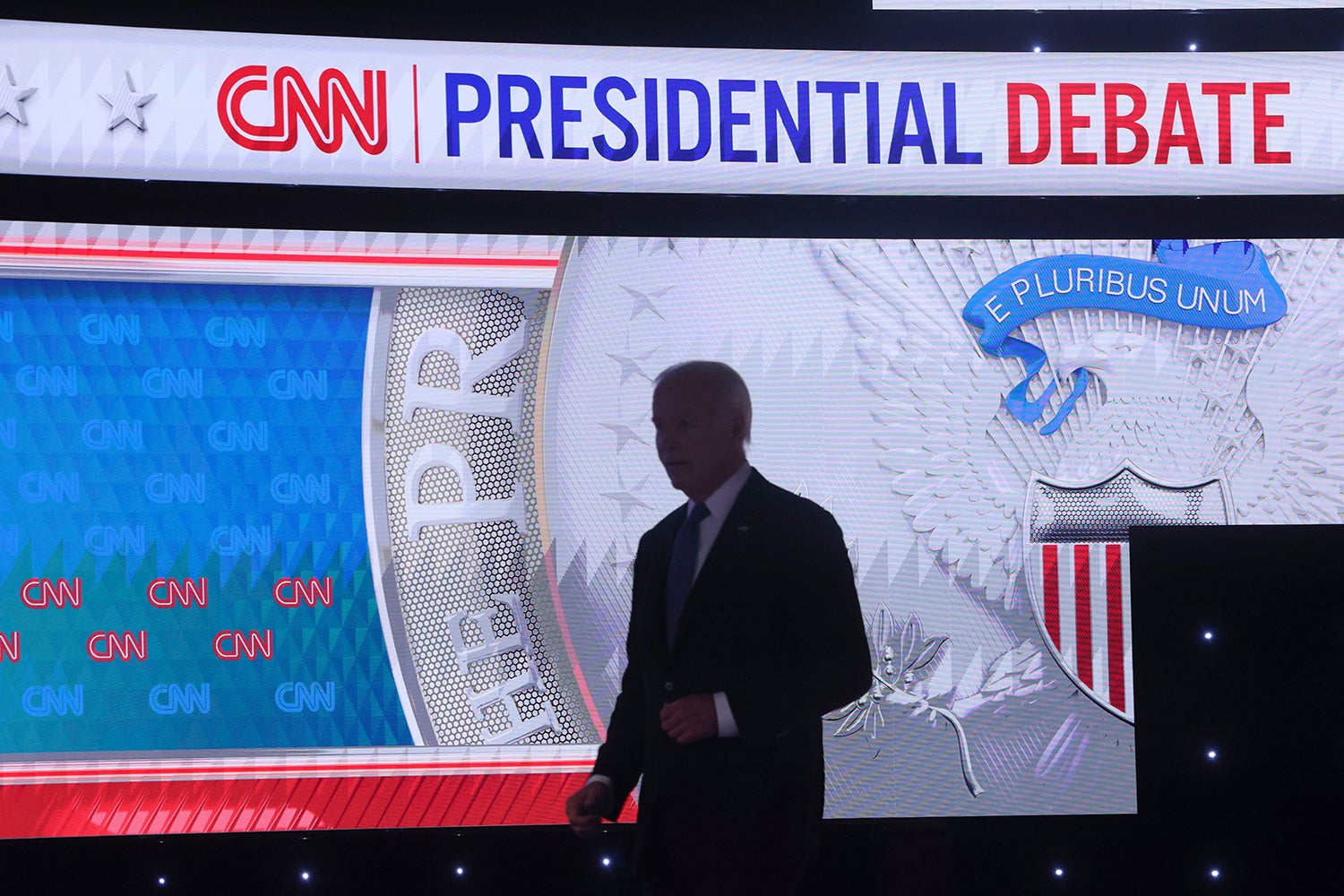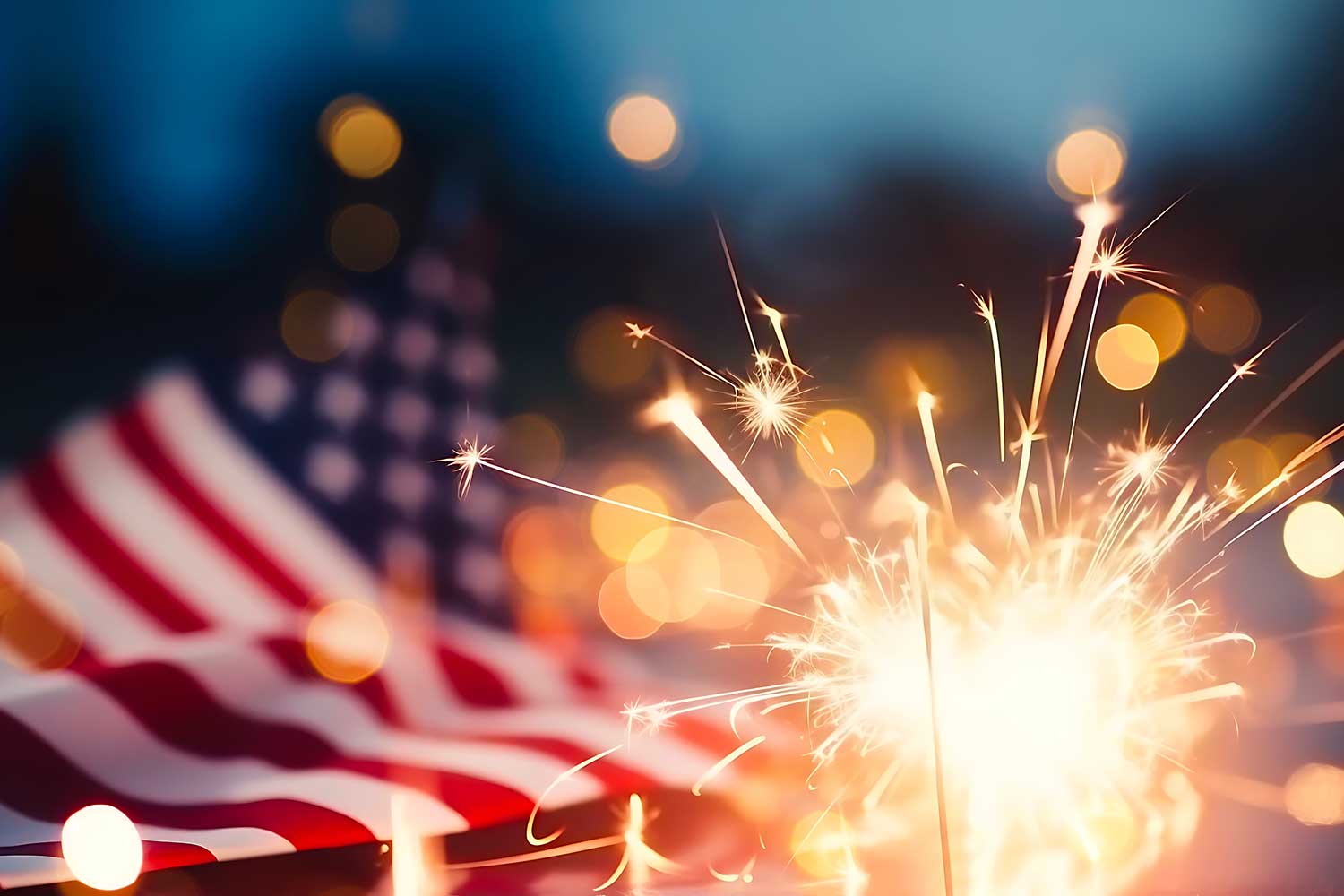Hey team, and welcome back to one5c! I don’t know about y’all, but I was beyond ready for the weekend around, oh, 7:45 Friday morning. The presidential debate scarcely skimmed the surface of the climate work that’s been done—and still needs doing—and then decisions coming out of the Supreme Court went from bad to well, fudge. (Sparing you expletive-filled direct quote on that last bit.) The court blocked the EPA’s “good neighbor rule,” which holds states accountable when their pollution crosses state lines, and ended the “Chevron deference,” a decades-old precedent that’s given federal agencies the room they need to regulate. Initiate tailspin.
Here’s how I stopped myself from spinning out: I went outside and let myself feel my feels. It’s okay to have moments of doubt or dread. This is hard, existential stuff we’re staring down. But we’re also not powerless, and it’s important to remember that too. It’s why you handed us your email and joined this team. We’re in this thing together. —Corinne
WHAT WE’RE INTO THIS WEEK
By Shreya Agrawal

Monday morning quarterback
What Biden didn’t say in the debate—but you can
There was only one question about the climate crisis during Thursday’s presidential debate. Donald Trump’s reply was a hand-wavy answer about how we “had H2O” during his time in the Oval Office, but Joe Biden’s response was actually more painful. The question should have been a layup to flex the achievement that will be his legacy: the Inflation Reduction Act. Not only does the law squarely address the big issues on voters’ minds (inflation! jobs! the economy!), its investments in clean energy, transportation electrification, and more stand to cut the nation’s greenhouse gas emissions by 42% by 2030. Biden said none of this, but you can—and Tim McDonnell’s post-debate analysis at Semafor can be your cheat sheet.
Consume this
Finding the ‘Hope in the Water’
David E. Kelley—showrunner of Ally McBeal and Big Little Lies fame—didn’t want his first foray into documentary filmmaking to be another doom-and-gloom climate story. Hope in the Water, a three-part PBS series, explores how fishers and aqua farmers are working to balance harvesting the ocean food with saving the seven seas. It’s full of delicious morsels, and a few surprises. Did you know that there are farmers in Minnesota cultivating shrimp on dry land? “We have to be mindful to make the [series] itself entertaining enough so when they do come, they’ll stay,” Kelley told Deadline.
Study guide
A sharper forecast for ice sheet melt
In all the years climate scientists have been modeling the relationship between rising temperatures and melting ice, something’s been off: Even the finest estimations didn’t match up with real-life results. New research in the journal Nature has surfaced an answer. Marine ice sheets are sensitive to small temperature increases in any intruding seawater that touches them. This means scientists have been underestimating the degree of melting and global sea level rise that happened during previous ice ages. The positive here is we’re getting closer to actually understanding what happens in climate-vulnerable locales, which means we’re getting better at predicting future changes.
Greenwatch
When the bad guys win
Coca-Cola’s latest “Recycle Me” campaign featuring a smushed logo against a red background––what a Coke can would look like when crushed––won an award at the Cannes Lions Festival. But environmentalists are flying a big greenwashing flag at the bright red ad. The Coca-Cola Co. is the largest producer of branded plastic in the world. Cannes judges described the campaign as “iconic” and “inspirational,” but climate activists say it (and its “recycle me” tagline) shifts attention away from the company’s polluting ways and should not be winning any accolades. Not to mention: Crushing cans isn’t all that helpful when recycling.
MIC-DROP CLIMATE STAT
1.2%
The portion of the Earth’s surface we need to protect to save most of the world’s threatened species from extinction, according to a new Frontiers in Science report.
Susty swaps
Four ways to make your Fourth of July a little more sustainable
By Sara Kiley Watson

The Fourth of July is one of the events of summer. Barbecues! Beers! Booms! A lot of what we love most about Independence Day sparkles red, white, and blue, but it’s not all exactly green. Luckily, there are some simple changes that can make your holiday celebrations a little less taxing on the planet.
Swap 1: Get some aluminum cups
Red Solo cups just scream summertime, but those beloved beverage holders are a nightmare to recycle. Solos are made of thick, molded polystyrene, or #6 plastic. It’s a cousin of Styrofoam, and recycling centers rarely take the stuff. In an ideal world, we’d all drink from reusable cups at parties, but breaking out the glassware to throw back punch isn’t always practical. Enter the aluminum party cup from Ball. Aluminum, unlike plastic, is infinitely recyclable, and it doesn’t downgrade each time it finds a new life like plastic does. You can also squeeze a couple uses out of the sturdy tumblers with a quick hand-washing.
Swap 2: Mix up the menu
The greenhouse emissions associated with a quarter-pound beef burger are nearly six times that of an Impossible or Beyond patty, which means swapping even some red meat for plant-based alts adds up. If every American traded just half of their annual burger intake for veggie patties, it’d be like taking 4.5 million cars off the road. Alternatively (or additionally!) you can also opt to make your cookout all about scrumptious sides. Cool Beans, our newsletter focused on delicious-yet-sustainable eats, has plenty on that front. We particularly recommend this gingery and surprisingly filling watermelon salad and this dairy-free Caesar pasta salad.
Swap 3: Consider a gas or electric grill
Grilling over charcoal makes for tasty burgers, but it comes with an unfortunate side effect: emissions. The footprint of a charcoal grill is about three times that of a gas grill—and that’s before you consider where the charcoal came from. Classic bricks, according to FoodPrint, are typically made up of a whole bunch of stuff, like wood byproducts, sawdust, and lighter fluid, which blast out loads of volatile organic compounds when burned. Gas grills, while they still use natural gas or propane, burn cleaner and start up fast, making them a more efficient alternative. If you want to dial down the impact of a BBQ even further, you could go all-electric.
Swap 4: Stick to community fireworks—or try an alternative
No, we’re not coming for your town’s celebratory light show, but we are saying you don’t need to add your own personal dose of pollutants and particulate matter to the heavens. Instead of lighting up a mini battalion of fireworks and firecrackers, consider other celebratory things-that-go-pop. We’re big fans of biodegradable confetti made from flowers, bubbles, party poppers, and even simple handheld sparklers.
